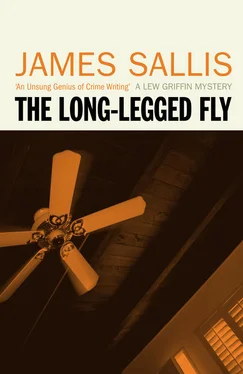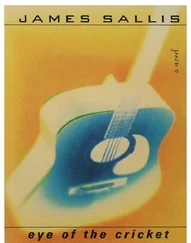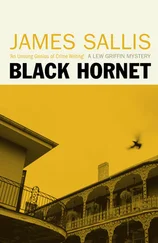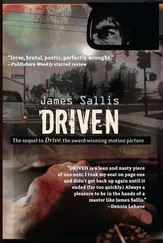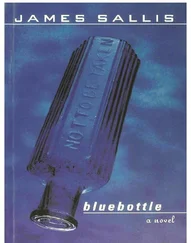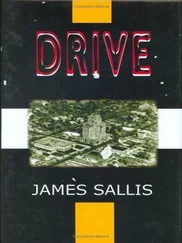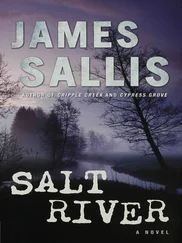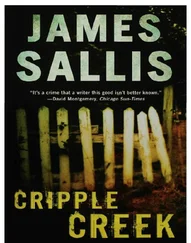James Sallis - The Long-Legged Fly
Здесь есть возможность читать онлайн «James Sallis - The Long-Legged Fly» весь текст электронной книги совершенно бесплатно (целиком полную версию без сокращений). В некоторых случаях можно слушать аудио, скачать через торрент в формате fb2 и присутствует краткое содержание. Жанр: Криминальный детектив, на английском языке. Описание произведения, (предисловие) а так же отзывы посетителей доступны на портале библиотеки ЛибКат.
- Название:The Long-Legged Fly
- Автор:
- Жанр:
- Год:неизвестен
- ISBN:нет данных
- Рейтинг книги:5 / 5. Голосов: 1
-
Избранное:Добавить в избранное
- Отзывы:
-
Ваша оценка:
- 100
- 1
- 2
- 3
- 4
- 5
The Long-Legged Fly: краткое содержание, описание и аннотация
Предлагаем к чтению аннотацию, описание, краткое содержание или предисловие (зависит от того, что написал сам автор книги «The Long-Legged Fly»). Если вы не нашли необходимую информацию о книге — напишите в комментариях, мы постараемся отыскать её.
The Long-Legged Fly — читать онлайн бесплатно полную книгу (весь текст) целиком
Ниже представлен текст книги, разбитый по страницам. Система сохранения места последней прочитанной страницы, позволяет с удобством читать онлайн бесплатно книгу «The Long-Legged Fly», без необходимости каждый раз заново искать на чём Вы остановились. Поставьте закладку, и сможете в любой момент перейти на страницу, на которой закончили чтение.
Интервал:
Закладка:
Finally a knock at the door, repeated twice.
“There’s dinner, when you want it.” Footsteps leaving.
We showered together and went to see.
A stew of chicken and vegetables, spinach tossed with egg and vinaigrette, pasta salad, fried bananas. Freshly ground coffee after.
“This time I do the dishes,” I said.
And did so, listening to the chirr of their conversation in the next room. Vicky had spoken with the head of volunteer services and the nursing director; both wanted to see Cherie for interviews.
I remembered Jimmi sitting up in bed without clothes reading Principles of Economy , thought of the first time I saw Vicky, just so much red hair floating above me, of how Cherie had looked so very young in the photograph and (as Vicky said) like someone who knows the best part of her life is already over.
Maybe the best parts of our lives are always over. Maybe happiness, contentment, are things we only recollect through the filters of time, elusive ghosts forever behind us.
In the next room they laughed together, Vicky’s an easy, rolling laugh, Cherie’s curiously childlike, and I thought: that’s really the only answer we have, laughter. For a long time after it was over I stood listening.
Chapter Eight
A few weeks later Vicky and I were standing together at New Orleans International. The weather had gone suddenly, unseasonably warm. We watched a small private plane gather speed and tear itself away from the earth. Earlier Don, Sansom and some others had been over for drinks and good-byes. Now it was our turn.
“I don’t know what might make you happy, Lew,” she said, “But whatever it is, I hope you’ll find it.”
“Or give up trying?”
“Quite.” She put her hand over mine on the railing. We could feel the heat through the window. I would never forget her eyes, the way her mouth shaped itself around words as they left it. “You didn’t know, but when I met you I had decided al r eady to leave, to go home. I was neve r ce r tain why I didn’t, not until you came to Hotel Dieu and found me. Only then did I r ealize that was what I had waited fo r .”
“I was in pretty terrible shape when you met me, Vicky.”
“A r en’t we all…. You know whe r e I’ll be, Lew. You can come anytime, if you change you r mind.”
“And you’ll be waiting?”
“Waiting, no. But I will be the r e fo r you if you come. This has all been something ve r y special fo r me, Lew.” She held her hand up by her heart, closed, then slowly opened it.
Eventually her flight was called, we fumbled through final farewells and awkward embraces, and she followed the laws of perspective down an embarkation tunnel.
I went to the bar for a drink and ran into a guy I’d gone to high school with and hadn’t seen since. Vicky had sold the car just before leaving. He was a cabbie now and offered me a free run home. But when we walked out a couple of hours and several drinks later, there was Verne leaning against the streetlight at the corner.
“Need a ride home, soldier? I’ve got my car.”
“I hope you don’t mind, Lew,” she said, feinting her way onto the expressway. “I know what just went down. Thought you could use a friend about now.”
“And always. But what about your doctor?”
She shrugged. “History.”
I watched her face pass through lights like a boat over waves.
“Are you okay?”
“Fine,” she said. “I’ve kept up, Lew. I talked to Don Walsh and some others, I always knew how you were, what you were up to.”
“You should have called. Or just come by.”
She shook her head. Several blocks passed beneath us as we curved across the city’s sky.
“Are you working?”
“Yeah,” she said, and laughed. “At a rape crisis center-can you feature that? For a long time now.”
“You get paid?”
“Sometimes.”
A little later she looked over at me and said, “Where’ll it be, Lew?”
“I don’t want to go back to my place.”
“I thought you might not. There’s always mine.”
“Catching balls on the rebound?”
She shrugged. “Whatever works. You wait and see.”
“Right,” I said. “You wait and see.”
Part Four
Chapter One
I still hear from Vicky, almost every month: long, chatty letters about what she’s doing, new friends and books, seeing The Big Sleep for the first time in Paris, discovering Faulkner, a trip to Russia. She even went back for a visit to the orphanage where she grew up. Still moving through the world with eyes wide, holding on to every fugitive moment of it.
Cherie had started working full time as a nurse’s aide just before Vicky left, and took over the apartment lease. Then she worked her way through nursing school. I don’t hear from her too often, but she’s doing fine-nice home outside Lake Charles, a hardworking guy who loves her, two kids that look a lot like Jimmi in the photos she sends every Christmas. At least for Cherie, the best part wasn’t over.
I stayed at Verne’s a few weeks, moved out to a furnished room (mutual decision), moved back in (mine). I was getting ready to move out again (we got along great as long as we didn’t live together) when I had an accident-the accident consisted of turning my back on a guy I’d just leaned on, hard, for money he owed the loan company-and Verne said: Don’t be silly, stay here.
For a while, in short, life was as complicated as that sentence you just read.
Laid up in bed with a concussion and cracked ribs, more or less just to relieve boredom, I wrote a book called Skull Meat , about a Cajun detective in New Orleans. Just lay there and spun it out, making it up out of whole cloth, improvising wildly, throwing in whatever came to me. The publisher paid me three thousand for it. Then, when it sold okay, he offered me five thousand to do another with the same character, and that one took. We got reviews in major papers, foreign sales, even a movie option. (The books are very popular in France, Vicky tells me.) Some critics started talking about me in the same sentence as Chandler, Hammett, Macdonald and Himes; they shouldn’t have, because those guys are way out of my league, but they did.
I don’t make a lot of money really, but with a book every year or so I’m able to pay the rent, buy what I need, stay out of debt and off the streets.
You write three or four hours, which is about all you can handle and stay sane, and then there’s still most of the day ahead of you. I tried reading Proust and the whole of Chekhov, awful TV movies, afternoon matinees at two dollars, avocational drinking. Finally I signed up for courses at Dillard and finished my B.A. Now I teach one or two days a week, just filling in, French mostly, an occasional writing course. I do it mainly because it’s fun, not for the money, and I learn far more than any of my students. As you get older you need some way of staying in touch with the young, something to keep your head working and turning, something to plow up rooting presumptions, new faces, new crops.
Verne and I found an old house just outside the Garden District with a slaves’ quarters behind, and that’s where I work. I have a stereo and lots of blues records out here, a filing cabinet, a desk with cubbyholes, another desk for the typewriter, a few books, and not much else. Roaches, of course. I turn on lights at night and the desks go from black to white.
I was eighty pages into a new novel, The Severed Hand , wondering if my crazy Cajun was about to beat someone up or get beaten up in a bar scene. I had on Cajun music as I often did while writing these books, hoping that wild, droning pulse might somehow work its way into what I was writing. Nathan Abshire sawed away at “Pinegrove Blues” on his accordion, a song he recorded under various names, at least once as “Ma Negresse.” I looked back through the manuscript and found that Boudleaux had been beaten up two chapters ago, so I figured it was time for him to win one. A character in the book was pretty clearly based on Blaise Cendrars-hence the title. I wondered if any reviewers or critics would pick up on that. I also wondered if other writers (because I didn’t know any) played such games to get themselves through their books.
Читать дальшеИнтервал:
Закладка:
Похожие книги на «The Long-Legged Fly»
Представляем Вашему вниманию похожие книги на «The Long-Legged Fly» списком для выбора. Мы отобрали схожую по названию и смыслу литературу в надежде предоставить читателям больше вариантов отыскать новые, интересные, ещё непрочитанные произведения.
Обсуждение, отзывы о книге «The Long-Legged Fly» и просто собственные мнения читателей. Оставьте ваши комментарии, напишите, что Вы думаете о произведении, его смысле или главных героях. Укажите что конкретно понравилось, а что нет, и почему Вы так считаете.
